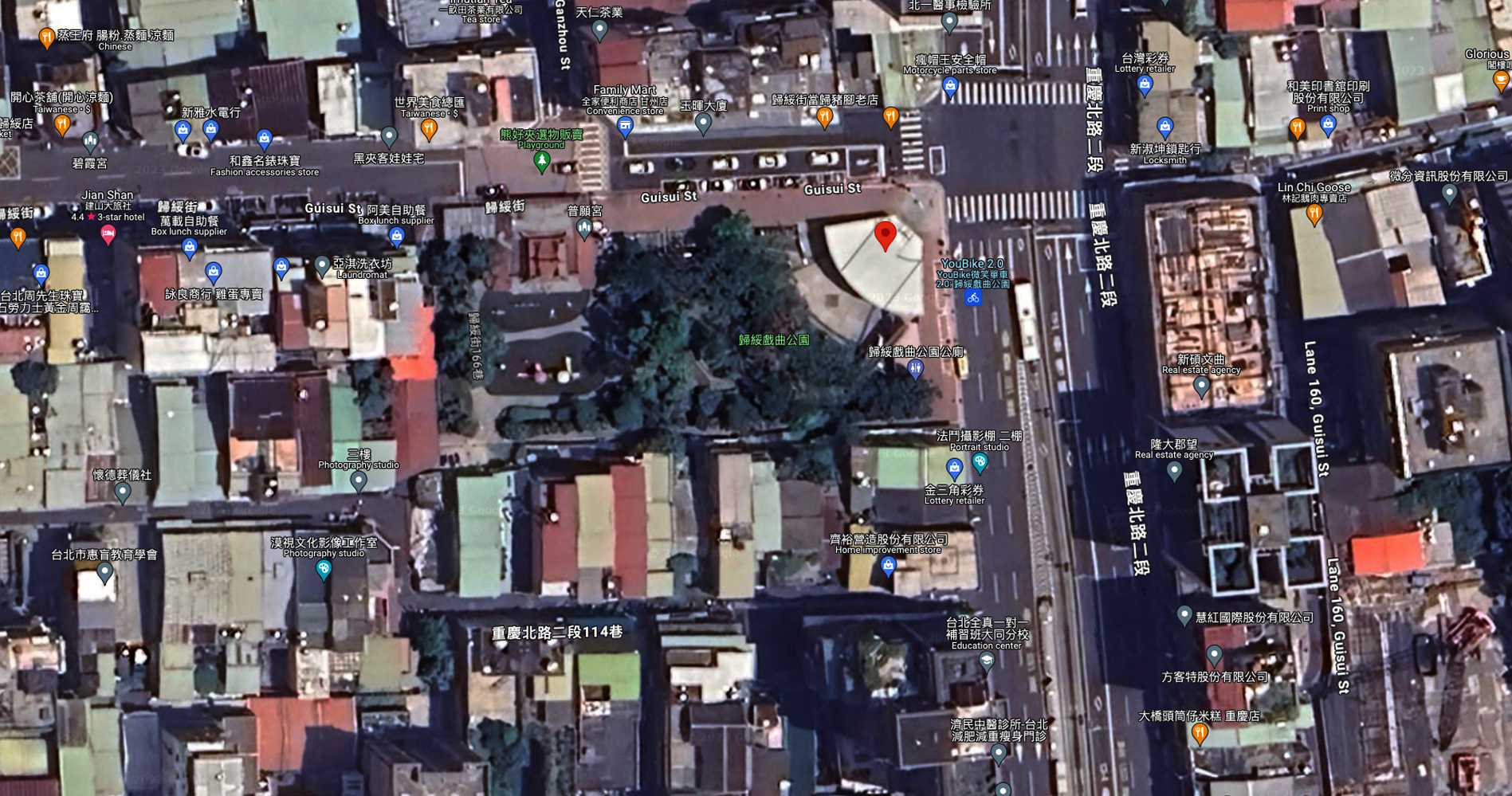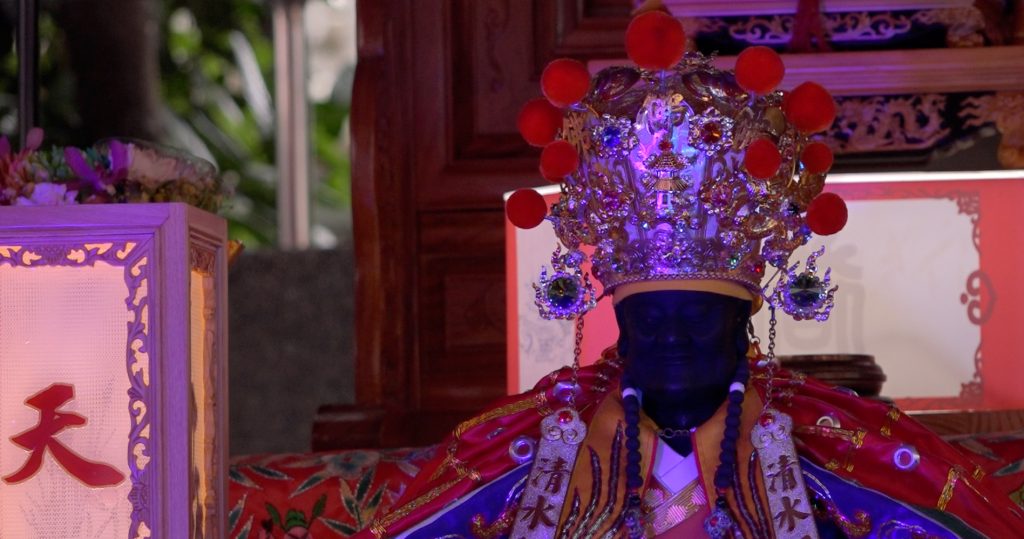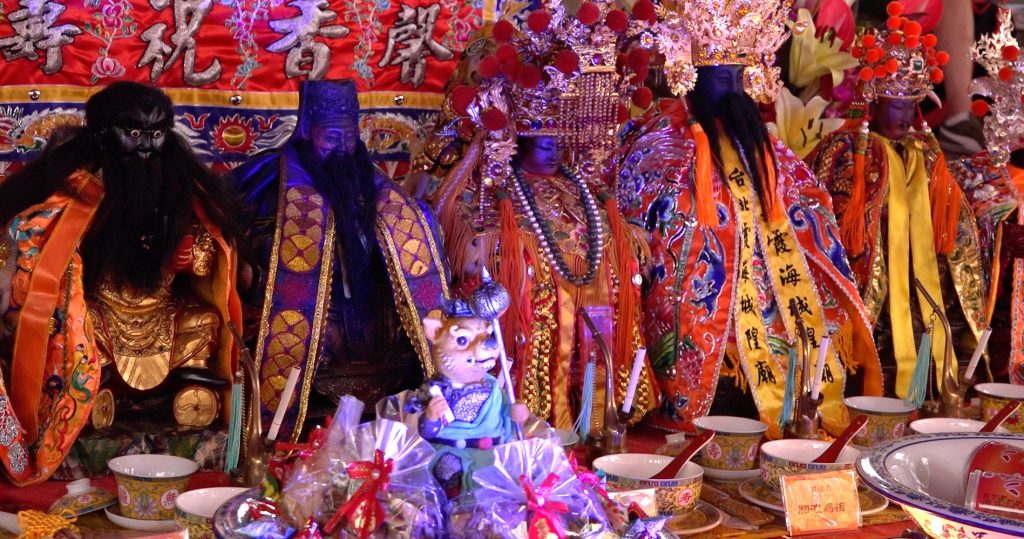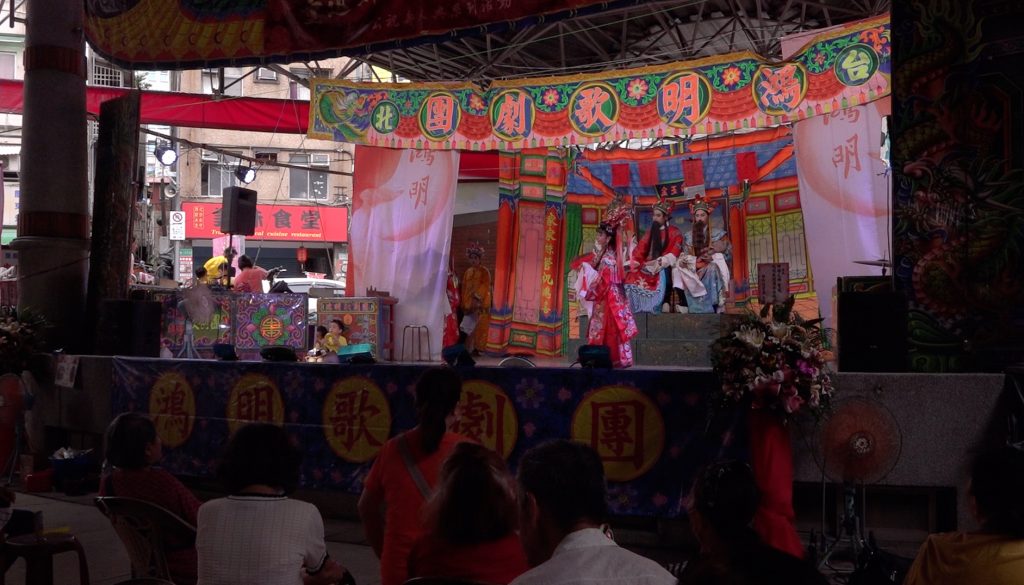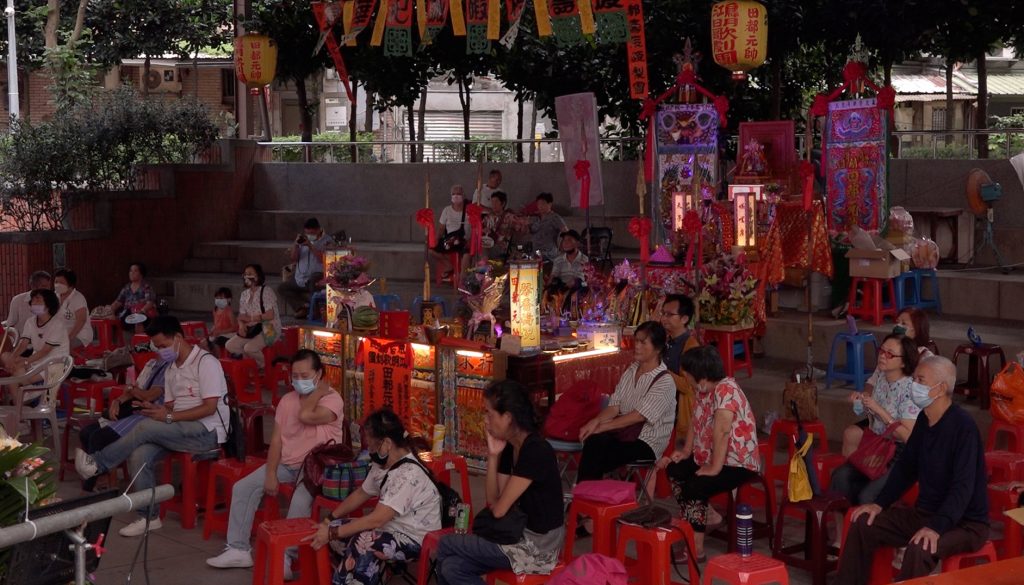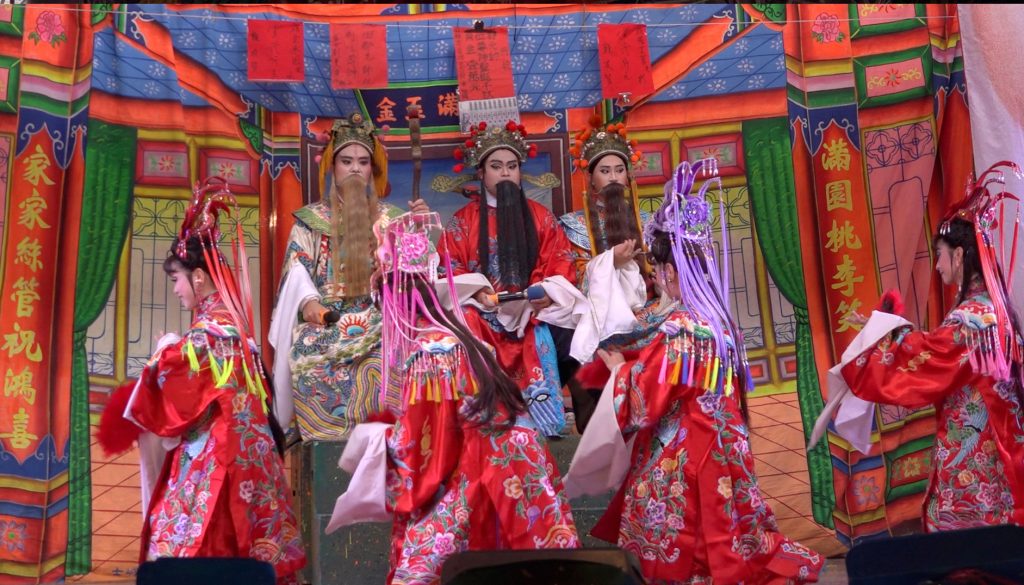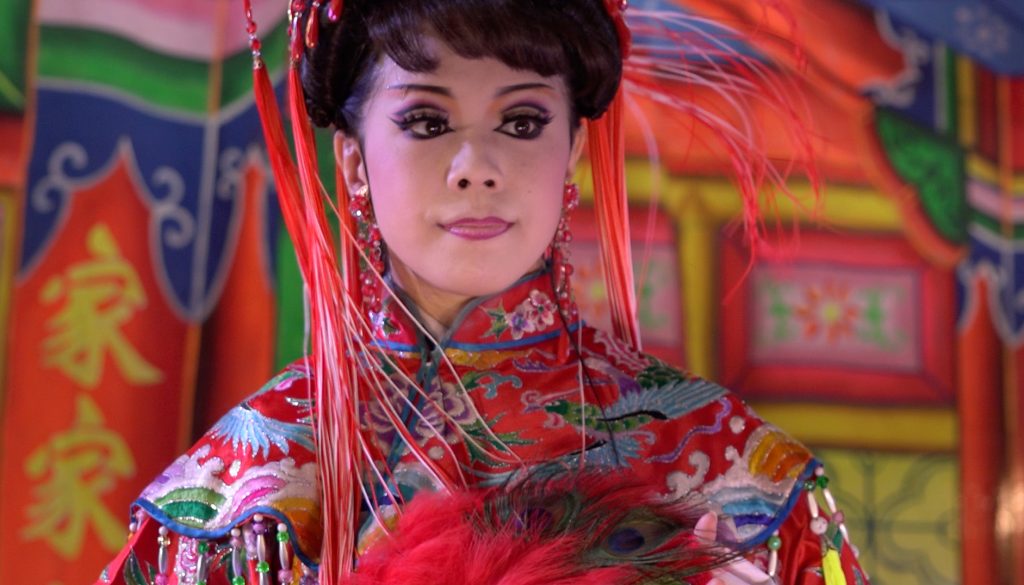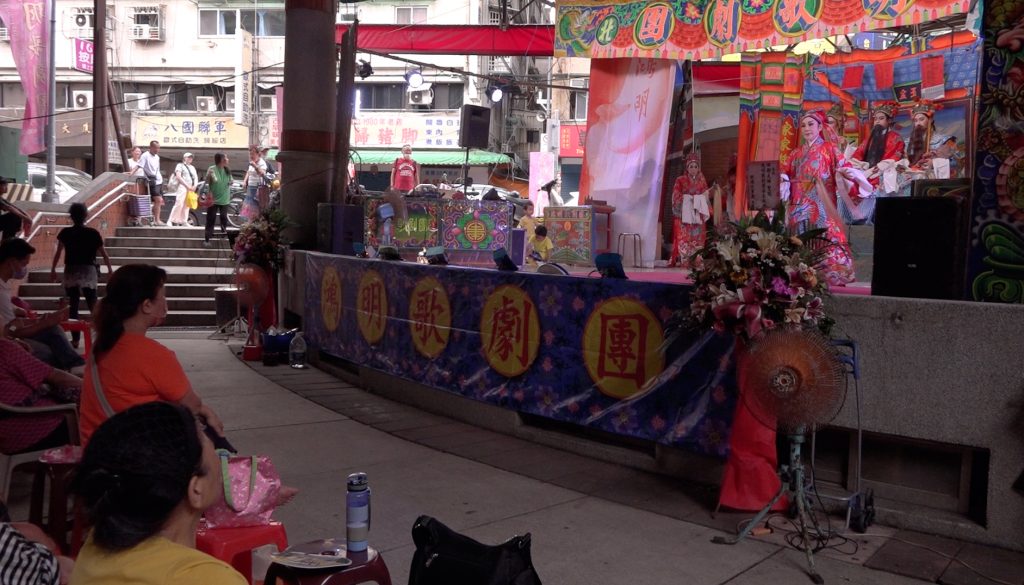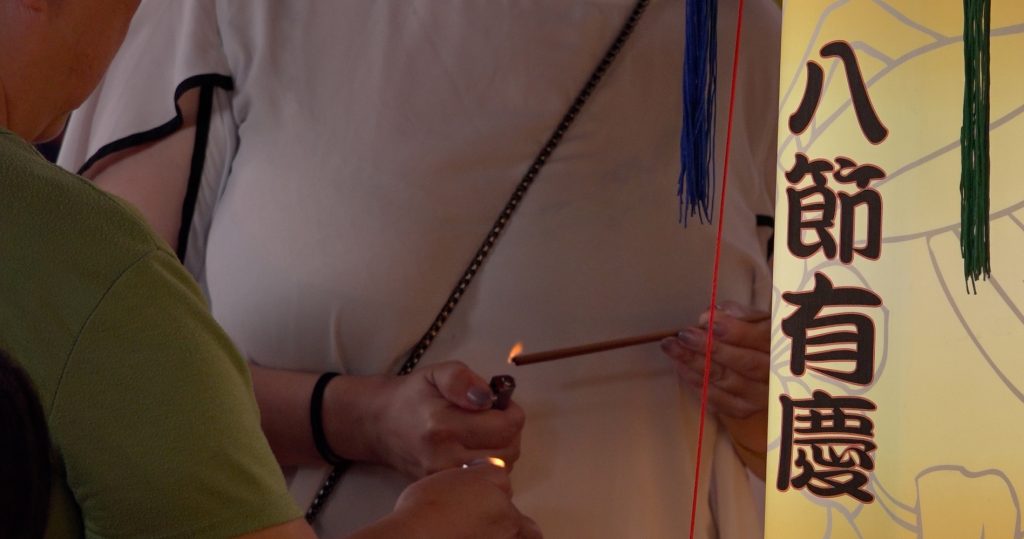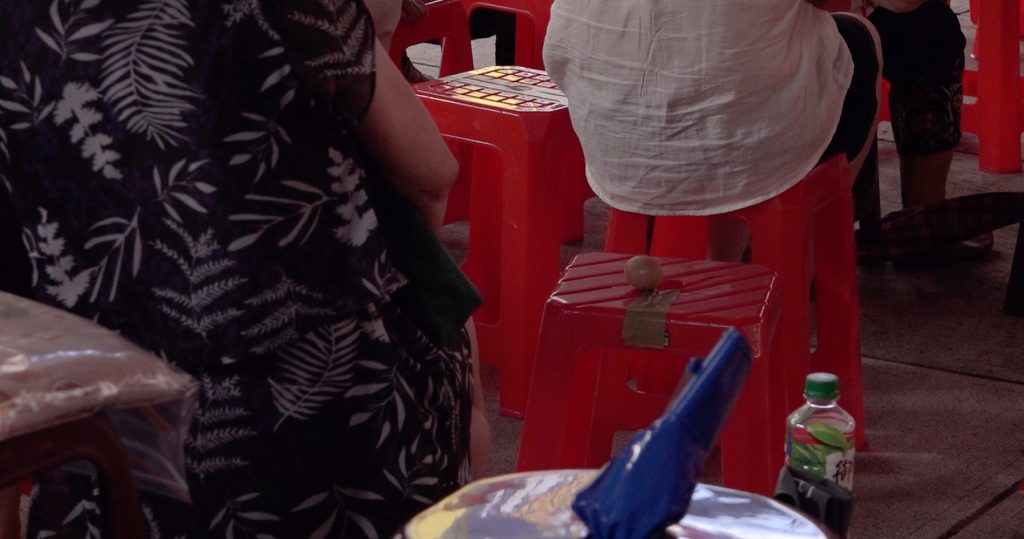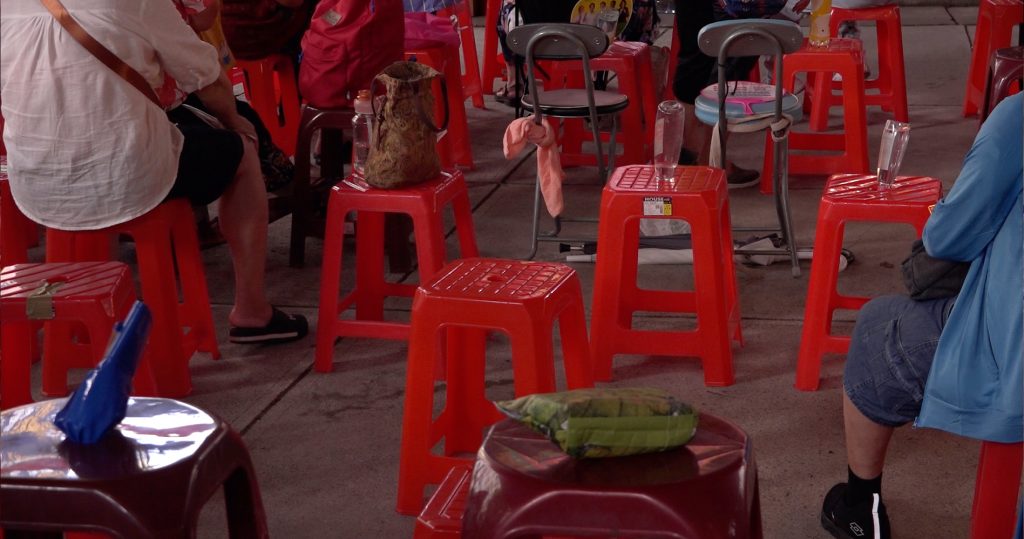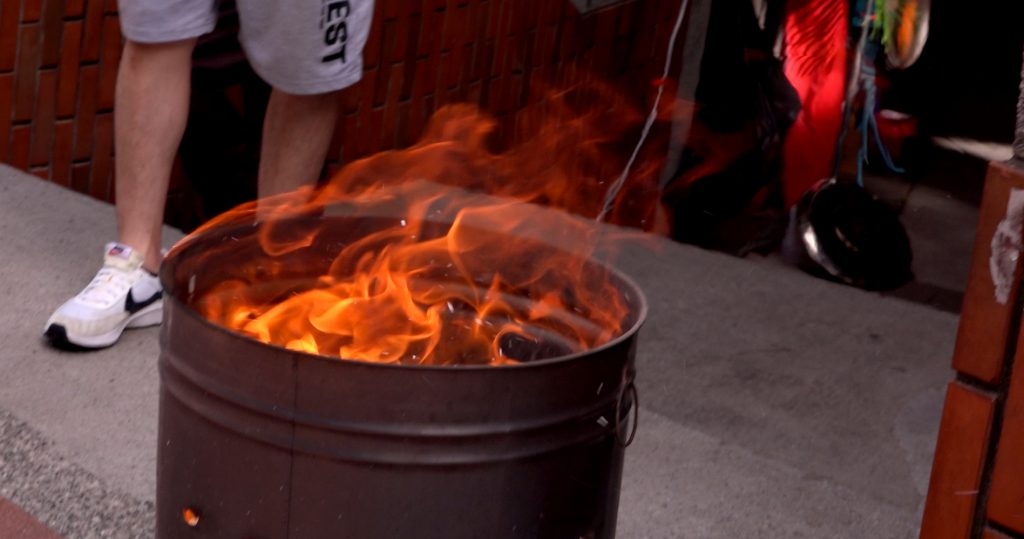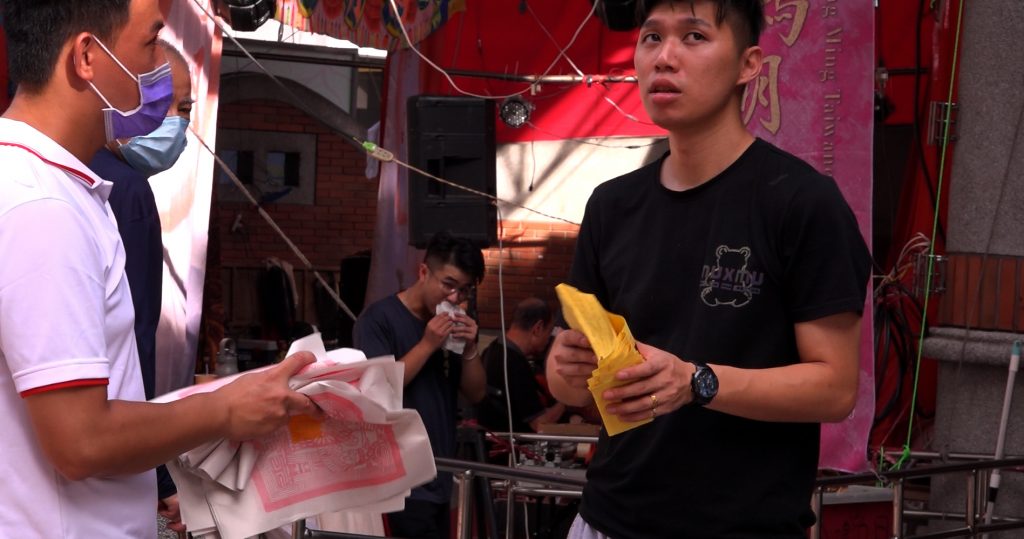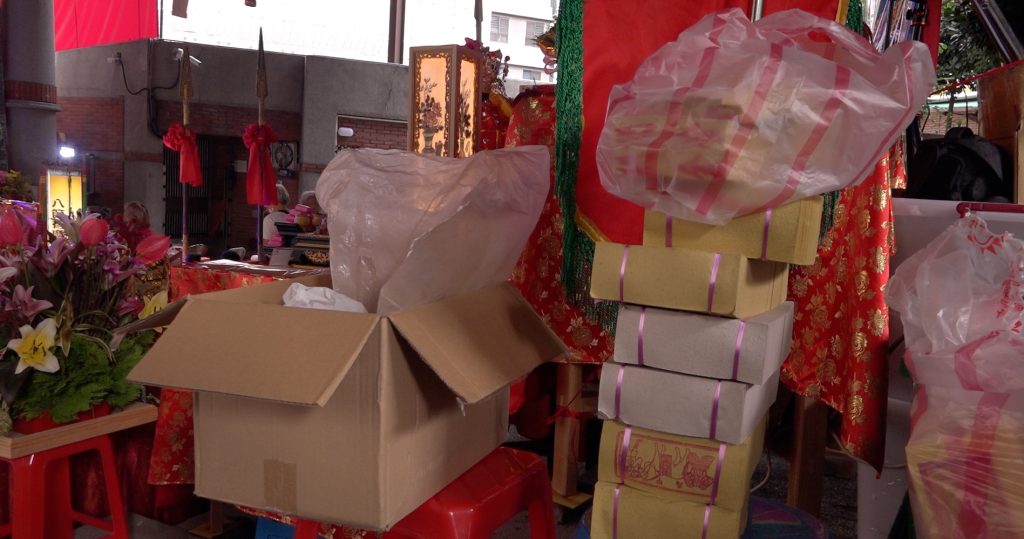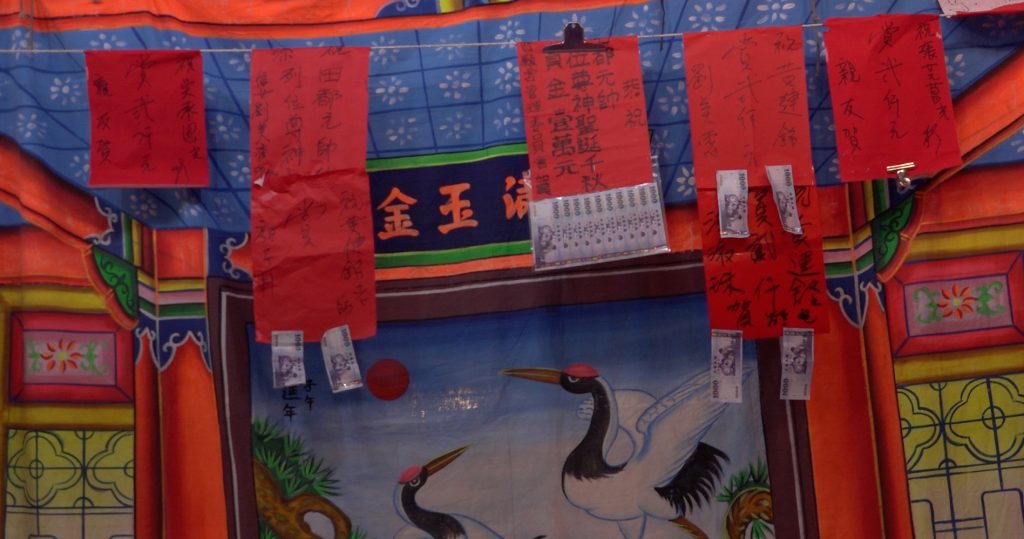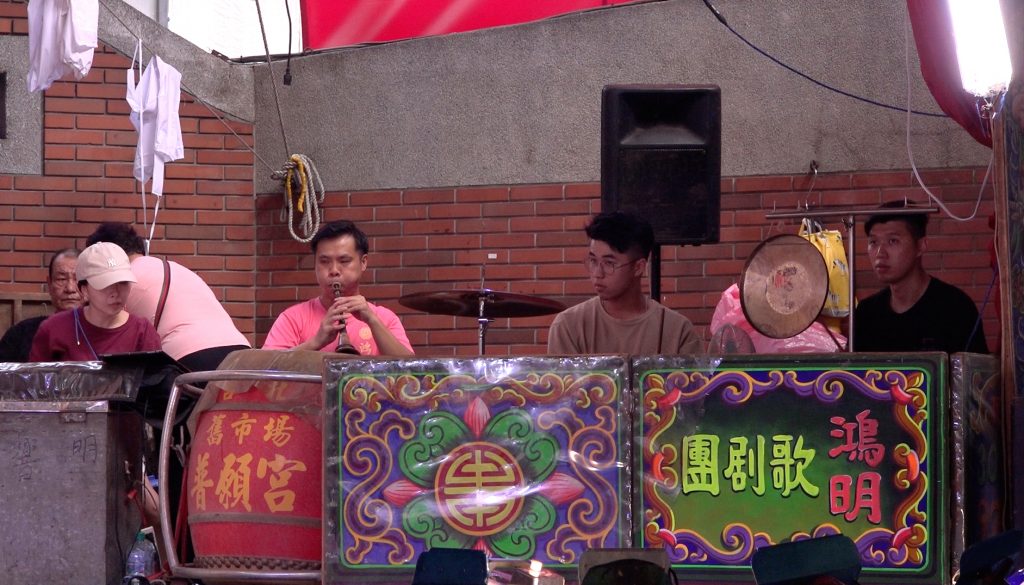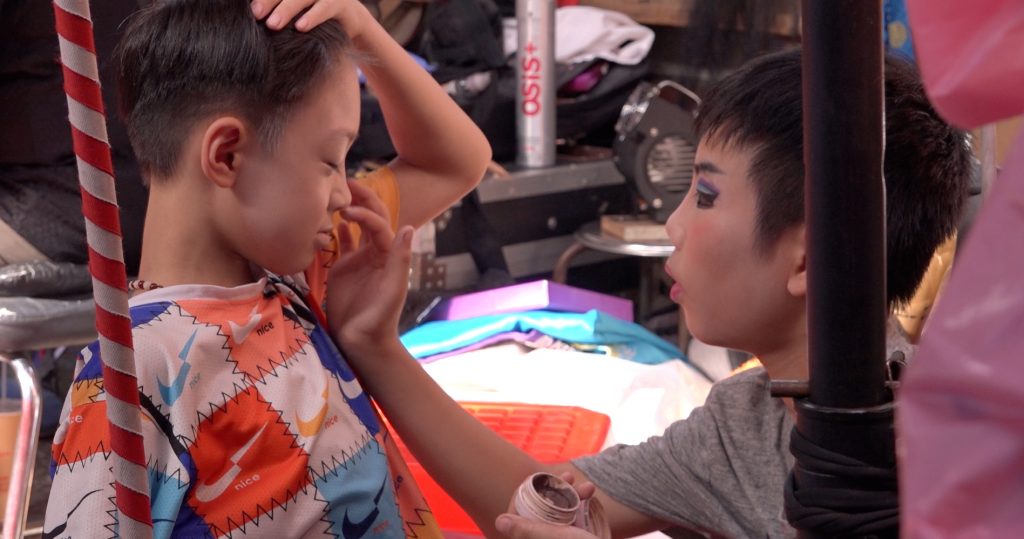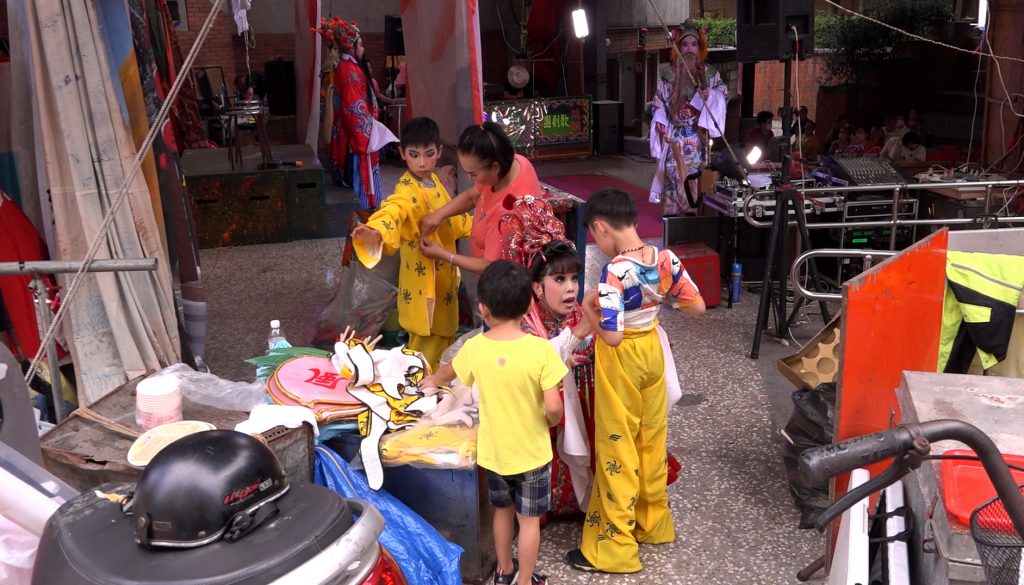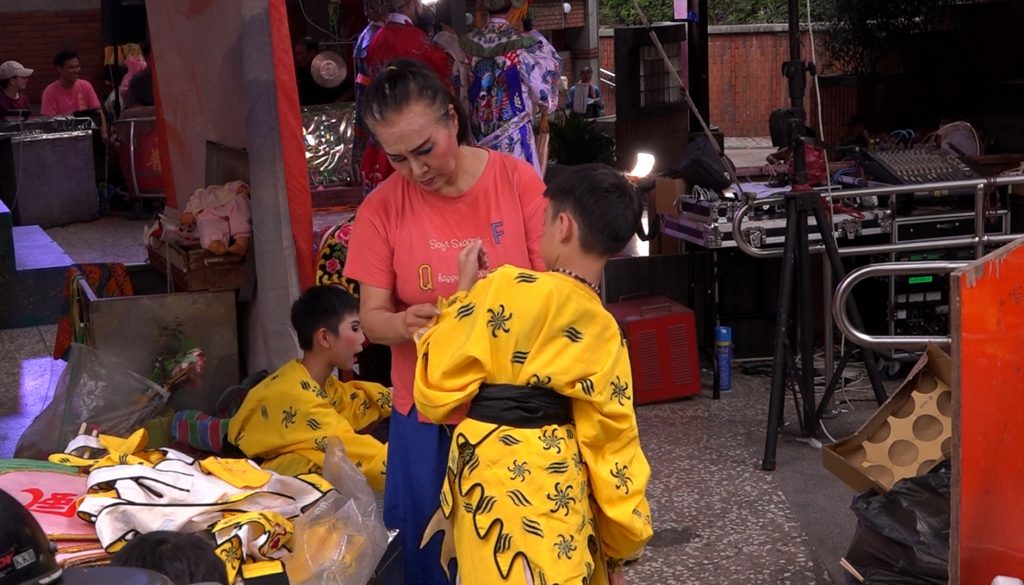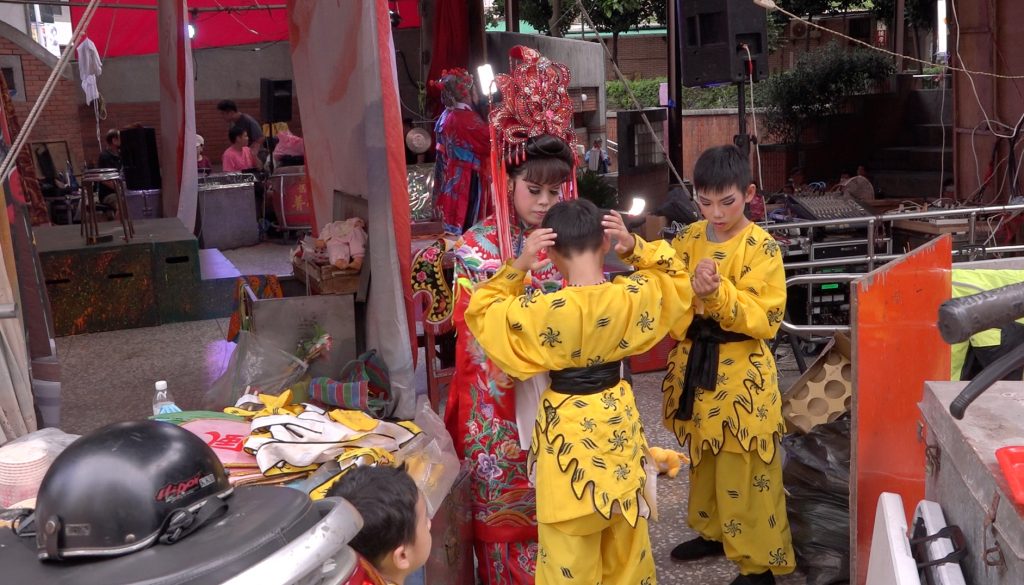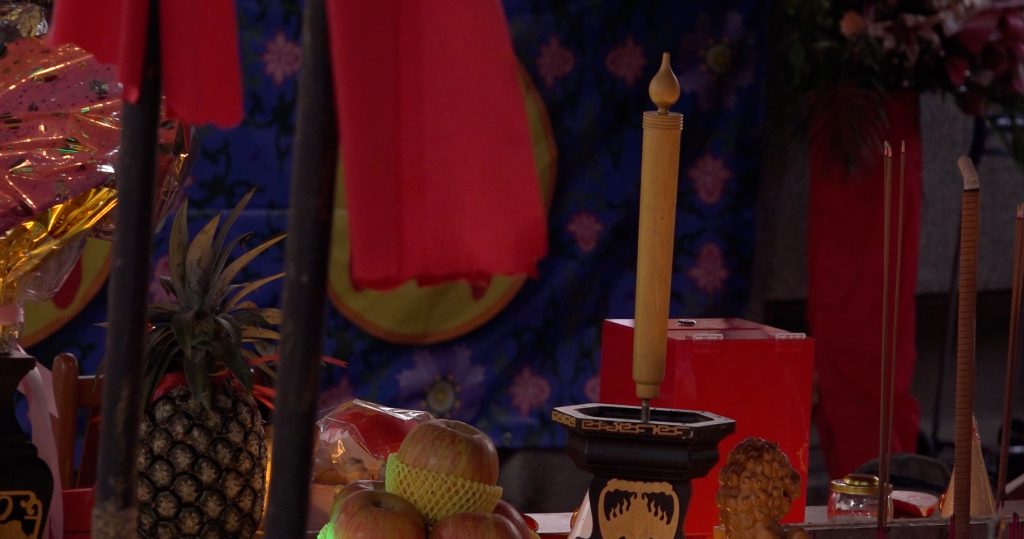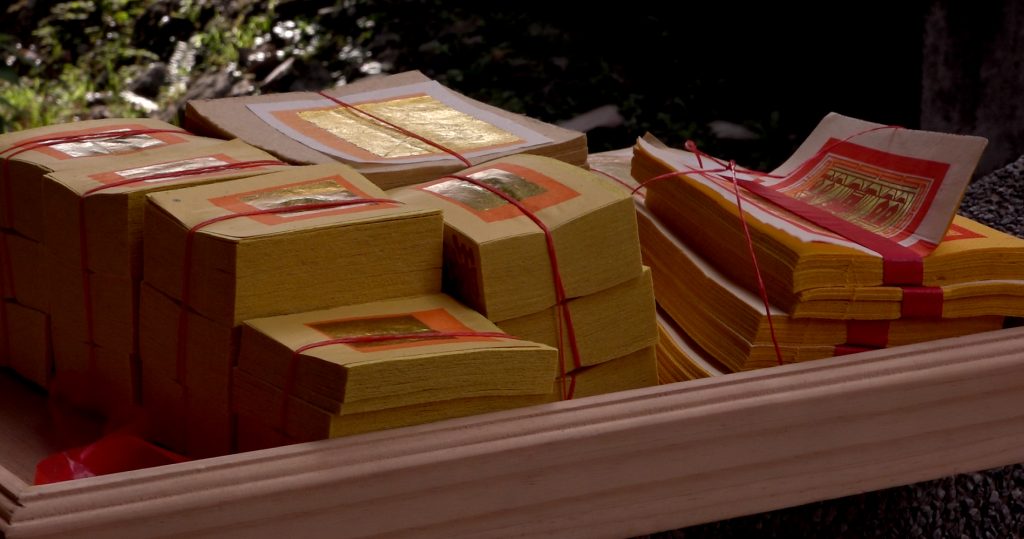On July 30th, 2023 we visited this outdoor stage in a small public park in the Datong District of Taipei. We arrived at around 2pm in the afternoon, when the performance of a traditional “Chinese Opera” ***was already in full swing. The Ge HongMing opera troupe had about 25 members, including children. Since the stage was right at the corner of a busy intersection, the music, live performed by about 4-8 musicians (depending) mixed with the sounds of traffic, honking, ambulances, etc. Committed audience members, mostly elderly people, had brought small plastic stools and sat in front of the stage to the left and to the right of a densely loaded offering table, on which sat also the deity (and their guests), in whose honor the performance was given.
In Taiwan, it is traditional in Taoist belief to celebrate the birthday of deities according to the lunar calendar date and this day was the birthday of Tian Du Yuanshuai (meaning Marshal ‘paddy field’ Du), who’s divine role is to be protector of Chinese regional opera. Many members of opera troupes in Taiwan revere him. According to the legend, Marshal Tian Du was abandoned on a paddy field as a baby. Chinese mitten crabs came to his aid, saving his life by feeding him saliva through bubbles. For this reason, he is often depicted with a crab symbol on his forehead and his devotees will not eat crab out of respect.
What was mesmerizing and to a certain degree confusing about this public temple opera performance (as opposed to the highly staged and perfected performances in theaters – which we also love and watch whenever we get the opportunity) is the incredible density of everything happening at the same time: performance, religious ritual, improvisation, skill, family gathering, rehearsal, labor, art, business, music, dance, poetry, prayer, celebration, survival, tradition, work, LIFE …everything is present all at once. Since the opera happens in a public space one can watch it from the front (like the deity) with an elaborate stage design of painted curtains in the background. One can walk around and watch it from the side, contemplate the busy road and city architecture as the backdrop for the performance. One can also walk a little further and look behind the stage and observe the actors changing costumes, eating snacks, nursing a baby, practicing their lines, taking a quick nap, counting money… One can come, one can go, one can light incense sticks, one can pray, one can put a row egg on a little red stool to reserve this seat for later (see slideshow for other options)… The performance lassted for about three hours, followed by a two hour rehearsal, followed by yet another 3 hour performance at night…time in public temple opera flows like a dancing ribbon that constantly changes colors….
*** Hundreds of traditional Chinese theatrical forms with very different musical and performance styles and sociocultural contexts have been gathered under the umbrella of “Chinese opera,” which often refers by default to only one specific local form, “Beijing opera” (jingju). Beijing opera becomes a metonymic representation of all traditional theatrical forms from China, across time, regions, language, and performance styles, as if for the convenience and satisfaction of the Western observer. Moreover, drawing strict generic distinctions among dramatic forms is itself a European and American habit, especially since the rise of realism. The term “Chinese opera” is thus a translation or rather a mistranslation of a Western categorization of performing arts. > ALTERNATIVE CHINESE OPERA IN THE AGE OF GLOBALIZATION Performing Zero by Daphne P.Lei
In traditional Chinese theatre, singing, dancing, speaking, and even acrobatics are all parts of the mise-en-scène. In general, arias are in rhymed verse, dialogue in prose. Music is the main determining factor in the genre. Playwrights need to have good knowledge of music in order to “write” plays; a scene of a play can be seen as a collection of individual songs following specific musical rules. In other words, music is not optional; it is essential and it is what theatre was. In premodern China, the most common form of stage drama was called xi or ju, both terms commonly translated “drama” or “theatre”; the verb often used with each of these objects was chang, “to sing.” As a matter of fact, when Western stage plays were introduced to China in the early twentieth century, they were called “spoken drama” (huaju). No singing in theatre? Such a novelty! “Speaking” is the marked term, not “singing.” > ALTERNATIVE CHINESE OPERA IN THE AGE OF GLOBALIZATION Performing Zero by Daphne P.Lei
Traditional jingju was actorcentered and offered little scope for a theatre director, since all singing and movements, including blocking, were dictated by the tradition. Rehearsals differed from what one would expect in Western theatre because life-long learning of one’s role itself constituted an unending rehearsal. Simple sets and minimal technical needs made final dress and technical rehearsals less essential. The notion of employing a theatre director to oversee every aspect of a production’s mise-en-scène was unknown in traditional opera. > ALTERNATIVE CHINESE OPERA IN THE AGE OF GLOBALIZATION Performing Zero by Daphne P.Lei
Audiences’ love of performative cross-dressing comes firstly from an appreciation for the high caliber of acting required to pull off the part. Roles like the nandan and the nüxiaosheng are complex and challenging because they demand that the actor break through the barriers of biology and gender, and reach toward an unattainable masculine or feminine ideal.
Performative cross-dressing is so enthralling because audiences are never allowed to forget the gender of the actors themselves. The greater the contrast between the actor’s onstage presence and their perceived “true” self, the more accomplished they are as an actor. Cheng Yanqiu, a much-loved nandan who lived in the first half of the 20th century, was a powerfully built man known for his forthright, direct personality. But on stage, twirling in circles and flourishing his silken sleeves, Cheng became an elegant, beautiful woman capable of striking myriad postures that tugged at the heartstrings. Cheng’s supreme technique came closer than almost anyone else to the nandan’s feminine ideal. >What Chinese Opera can teach us about Gender, by Chen Tian
